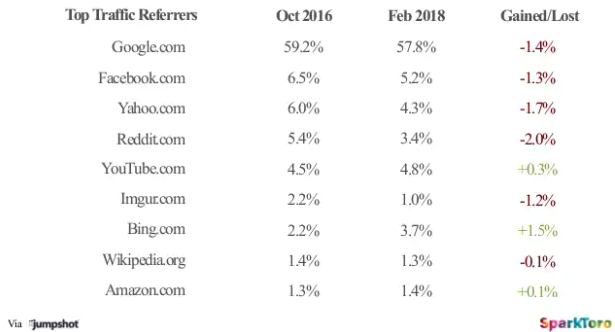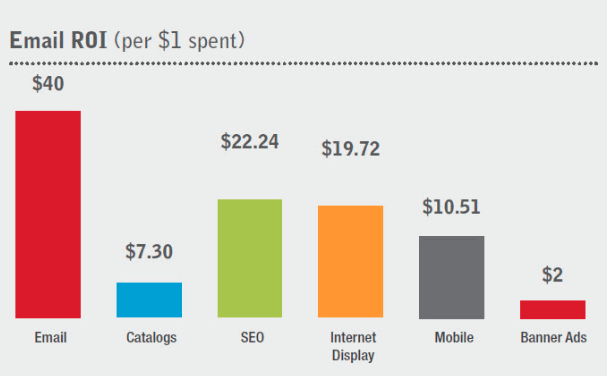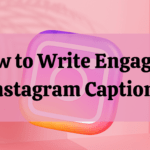Content marketing isn’t just a hot buzzword, it is a valuable strategy to boost your branding and grow sales. Over the past years, it has become a necessity in a comprehensive digital marketing strategy and many brands have successfully adopted it.
It’s been proven that content marketing can have significant benefits to your brand.
However, don’t get discouraged. If you are just starting your content marketing research, you are at the right place. It is not too late to start and benefit in the future.
Contrary to many other digital marketing activities, content marketing takes time to bring results. If you’re using social media or digital ads, you may be used to getting instant results. If you post a picture on Instagram, you’ll get the likes (a result) within seconds. If you run a Google Ads campaign to drive sales leads, you’ll start getting them within a day or two after the launch of the campaign.
To get the results through content marketing will, however, require much more time. But on the bright side, content marketing will also have a much longer impact on your brand. The picture that you posted on Instagram will no longer generate likes days after, but the content that you produced (e.g., on your blog) will keep on driving traffic to your website for years.
So, if you haven’t explored content marketing yet, I am sure there are some valid reasons for it. Maybe it looks like an overly time-consuming and complex activity. Maybe you aren’t sure where to start or what would work. Maybe you aren’t sure what benefits it could have on your overall marketing strategy. No matter the reasons, the benefits will outweigh any doubts or fears that you may have.
What is content marketing?
Content is a very broad term. Anything that we do, could constitute content. So, before we move on and talk about the benefits of content marketing, let’s understand what content marketing actually is.
It is a type of marketing that involves the creation and sharing of online material (such as videos, blogs, and social media posts) that does not explicitly promote a brand but is intended to stimulate interest in its products or services.
While a lot of marketing activities revolve around generating sales, content marketing does not necessarily directly promote a brand or products. This is a major difference between digital ads and content marketing because the ads have a purpose of promotion and selling.
On the other hand, content marketing has a purpose of education, stimulation of curiosity, and interest. For this reason, content marketing is a powerful strategy to build followers on social media channels, as well as position your brand as a thought-leader within your industry.
Because of its purpose, content marketing promotes sales and brand indirectly. People would choose to make a purchase once they feel comfortable and trust your brand with whatever message you’ve been delivering.
I would say that anything that you post organically should fall under content marketing. Producing educational blog posts, informative social media posts, or having a vlog all be different times of content used in your content marketing strategy.
What types of content to choose will depend on your brand, product or service, and the audience that you wish to engage with. Experiment to discover the best format and see what works best for you.
What are the benefits of content marketing?
Now that you know what content marketing is, let’s take a look at content marketing’s benefits for your business. Even though the benefits may differ based on the types of content you create or based on the platforms that you use, I choose the ten most common benefits that you can expect for your brand.
Don’t expect all of them to happen to your brand at once. Some may require more time than others, but if you’re consistent with your content marketing strategy sooner or later the results will show.
Below are the main benefits of content marketing for every brand.
Builds relationships with your audiences
Many CEOs will say that marketing shouldn’t be about building relationships, but about driving traffic to the website, finding avenues where sales teams could build relationships with the prospects. In reality, sales teams aren’t equipped to build these deep relationships, because they only care about the sales and commission.
This is where content marketing comes in. As earlier mentioned, content marketing isn’t about sales pitches. In fact, I would highly discourage you from using content marketing for direct sales. To me, content marketing is a great way to educate my audience, the way to connect with them and build an honest relationship.
Who knows, maybe in a month or a year, these relationships will lead to the audience becoming paying customers.
Great content will educate your audience and will help them understand your product and services better. Maybe today they are not ready to buy, but instead, they will subscribe to your newsletter or follow on Instagram.
By continuously providing high-quality content that stimulates their interest in your product and brand, you’ll be getting closer to converting them into paying customers in the future. The relationship that you build will also result in much more loyal customers.
Positions your brand higher in search engines
Google loves good quality content. In fact, Google is the first place that you want to be if you want to do business because you want to be discovered by your prospects. How will you end up on Google? By creating high-quality content.
Google’s main mission has been to provide its users with the most relevant and best content possible. In the end, people turn to Google when they want to learn something, buy something or go somewhere.
In fact, a report by Sparktoro and Jumpshot shows that Google is still by far the biggest traffic referrer. And 10x bigger than the second biggest referrer (Facebook).
That is a significant difference, and therefore, being on good terms with Google should be your primary objective.
Generating and refreshing content will have a big impact on your website’s SEO. Each and every blog post or page that you add to your website will be indexed by the search engines (Google, Bing, Yahoo, etc.). This means that you’ll have a chance to show up in relevant search results and people will actually be able to discover your brand organically (without you paying for search engine ads).
However, don’t think that quantity here plays a pivotal role. It doesn’t. What matters is the quality. Therefore, having fewer high-quality entries will have a bigger effect on your search engine marketing strategy.
High-quality content also boosts your domain (website’s) authority which means that your website would be shown to more people who are searching for specific information online.
Keep in mind that to achieve the above your content should be SEO-friendly.
Drives traffic for other sources
Once you create some high-quality content that ranks on Google search, you’ll notice that more and more people (other brands, bloggers, prospects) share your content on their platforms. This will increase traffic to your website from other referral sources, such as other domains, social media, forums, etc.
If you use Google Search Console, you will be able to track everyone who is referring to specific pages on your website. Head to backlink report to find out what domains picked up your content and used it in their content.
But content marketing is not only about blogging. You can create great videos explaining your products or sharing industry insights. These videos can be uploaded on YouTube and other video-sharing platforms and link to your website.
Pinterest is a great referral traffic source for pictures, which can lead to your blog posts.
Your content (for example blog posts) may be also featured on external websites, such as Inc, Forbes, Quora, Medium, or others. They could also link to your website driving extra traffic and increasing your brand awareness.
As you can see, depending on the format, content marketing can have a great impact on the discoverability of your brand and drive extra traffic to your website.
Drives more sales
Having more people visiting your website without them actually buying from you makes no sense. That’s where content marketing comes in handy, as well.
The buyer journey is complex and often has multiple stages. Seldom will the consumers purchase instantly from a brand they just discovered. Content marketing will help to move them down the funnel one step at a time.
As many marketers put it, the buyer journey has three main stages: awareness, consideration, and decision. Your content marketing strategy should give relevant content to different stages in the buying journey and influence the conversion into a customer.
Before purchasing, people will realize that they face a specific problem that needs solving (awareness stage). They’ll turn to Google to research possible solutions and discover your brand and ways you suggest them to solve that issue (consideration stage). Finally, they’ll make a decision on what’s best for them to solve the problem (decision stage).
People tend to engage with the content (blog posts, visuals, videos) much more than with “dry” sales pitches. This is how you can cater your content to fit different stages of the buyer journey.
Consumers today are savvy and they like conducting research prior to making any purchasing decisions. If you make your content educational and appeal to your audience, they are more likely to purchase from you rather than look for answers on your competitor’s website.
According to Hubspot, B2B companies that blog only 1-2x/month generate 70% more leads than those who don’t blog; while companies that increase blogging from 3-5x/month to 6-8x/month almost double their leads.
Improves brand authority & trust
You want your brand to be perceived as an industry leader and better than your competition.
Competition is fierce nowadays. Consumers are frequently spoilt for choice and tend to choose those brands that show the highest authority. High authority often equates to reliability which is crucial in sales.
The content that your brand produces helps potential consumers determine your credibility and make a great first impression. If the content that you produce has value to your consumers, they will think highly of your brand.
They may not purchase instantly, but if they find your content valuable to them, they’ll surely follow you to get learn more. Often, when the time is right your followers will convert into paying customers.
Another way to use content marketing to build your brand authority is to showcase your proof of expertise through case studies. Your goal here is to show people that you know what you’re talking about and leverage on external validation.
Being an industry leader is a great value-added point because it grows consumer confidence in what you do.
Helps to get more followers on social media
Content marketing can have a huge impact on your social media growth
Each person who finds your content (no matter the format) valuable to them is very likely to search for you on social media and follow you. The reason is simple – they will be sure to get more valuable information from you by following you.
In this way, you’ll build your tribe.
A tribe is people who follow you because they find your content relevant. Having great and good-quality content is the best way to grow your tribe. Many of these followers would share your content with their friends and create a snowball effect for your social media growth.
Visual from memberpress.com
Having an engaged tribe on social media can play to your advantage in the long run. These people who continuously follow and engage with your brand likely trust your brand and are ready to become your customers.
When the time is right, you can try to move your social media followers from the awareness/consideration stage to the decision stage. It will be much easier to convert them into customers than people who just discovered your product via paid ads.
Is universal
In my career, I haven’t encountered any industry that wouldn’t be able to leverage content marketing. It is vastly universal and all industries can gain a lot from it.
Even traditionally boring and un-sexy industries, such as payment, manufacturing, or oil and gas can provide valuable insights on the industry they’re in and make it much more approachable and relatable to end-consumers.
Content marketing works very well for both B2B and B2C companies.
There is literally no industry that wouldn’t be able to use content marketing strategies to their advantage. The best way to start is to answer the most common questions that consumers have. In this way, you will start building a relationship with them and gaining their trust, while providing convenience.
The CMI’s digital content marketing stats show that 72% of marketers say content marketing increases engagement. In addition, 72% say it has increased the number of leads.
Provides high ROI
Content marketing is much cheaper compared to digital or traditional advertising and therefore has a much higher ROI. Moreover, we have already discussed that content marketing has a long-term value, while digital and traditional advertising would bring benefits for the short term.
Two of the most effective ways to promote your content are e-mail and SEO. It also so happens that, according to Smart Insights, e-mail and SEO have the highest ROI for every dollar spent.
Let’s imagine that you published an article and it ranks on the first page of Google for the “best ways to learn Spanish” keyword, which has approx. 300k searches a year in the USA. Say 20% clicked into your article – that’s 60k traffic from one post only.
What if you send a newsletter to a database of 30k with the link to the same article. Roughly 30% of your recipients will open the newsletter and maybe 10% will click on the link – that’s additional 900 people visit your post.
Now, you convert that into the $ value and you’ll see that content marketing indeed has a very high ROI.
Apart from that, content marketing has a lifetime value. It means that the blog posts that you publish today, will drive traffic to your website until you delete them. You can repetitively promote the same blog posts increasing their value over time.
Is a less ‘in-your-face’ kind of marketing
We are exposed to a tremendous amount of ads on a daily basis. Did you know that on average, we see between 4,000 to 10,000 ads a day? This is a huge number of ads, don’t you agree?
No wonder, most of us have ad-blockers installed. However, some statistics suggest that as many as 50% of all internet users have ad-blockers in place.
How can you deliver an ad if so many of your potential customers won’t be able to see it?
That’s where content marketing comes in handy. It’s less annoying and more natural because people discover it when they search for information. It means that if I am looking for inspiration for my next holiday destination in Southeast Asia, I will ask Google for advice. That’s when travel agencies will show up with engaging content that will deliver the answers.
I’ll be able to discover articles written by bloggers and travel agencies that will share information on the best places to visit, best deals, and ways to enjoy my holiday to the max. My search intent isn’t to buy the package, that’s why ads would be annoying and I wouldn’t click on them.
But by discovering content that’s helpful to me, I’ll start building relationships with travel agencies or bloggers who’ll share all I need to know about traveling to Southeast Asia. As a result, I will be also more likely to purchase some tours via their websites.
Why do you think travel bloggers are extremely successful at generating revenue? Because they describe experiences through their content and work with brands to monetize their content. Strategies like affiliate marketing work amazing together with content marketing.
Reduces the workload for your customer service team
Most questions that customers or potential customers ask are standard and are easy to answer in concise blog posts. People tend to Google to find the answers first, if they cannot find them, they may engage with your support team or approach your brand through social media.
Make your support team’s life easier by creating answers to the most frequently asked questions. There can be in a form of a blog post or even as social media images.
Most questions can be very easy to answer — How do I reset my password? Where do I find the serial number? How do I connect this to my smartphone? How long is the warranty? You get the drift. These are standard template questions that you can answer in blog posts. In this way, you will reduce the inquiries and workload for your support team.
In fact, you can use the same approach and reduce the workload of your sales team. Find out what are the main questions that the prospects ask prior to making a purchase and compile the answers in a blog post.
Congrats, this should improve your customer experience as the answers will be instant! No more waiting time for a simple question.
So, where do you start?
I get it. Frequently, the starting part is difficult. However, don’t postpone it and start today.
My strategy always is this:
-
Write separate blog posts on your company, your products, and solutions. Don’t use industry jargon. Be simple and educating.
-
Once the corporate part is done, start educating your audience by answering the general, but industry-related questions. For example, if you run an advertising agency, answer questions like “Why do I need a business Facebook account?”. If you are a car mechanic — “What you shouldn’t do if you want your car brakes to last longer”. If you’re a bakery — “Reasons why you should always choose almond flour”. Having answers to these questions will help you build authority and position your brand as an industry thought leader. They would also serve as a great basis for your potential consumers to find answers to questions that are important to them.
-
Never hard-sell through your content. Remember that the purpose is to build a relationship with your audience, rather than be pushy and sell your solutions or products. Pushy content never works. Don’t treat it as advertising, treat it as consulting.
-
Make your content down-to-earth, meaning it should help the general audience. Expect that people who’ll read will have very little prior knowledge, that’s why they are looking for your content to learn.
-
Share your content on social media, forums, and other publications, such as Medium and Quora. You can always recycle the same content and share it multiple times within a certain period of time. For example, it is completely OK to re-share the same blog post on Facebook every two or three months.
Ask yourself if you’re ready to do all of this alone or you want to partner with an expert who does this every day? If you are more interested to work with a partner who’ll assist you to achieve your goals via content marketing, share more about your goals, and let’s make it happen.
What are the 10 benefits of content marketing for your brand?
-
It builds relationships with your audiences
-
It positions your brand higher in search engines
-
It drives traffic for other sources
-
It drives more sales
-
It improves brand authority & trust
-
It helps to get more followers on social media
-
It is universal
-
It provides higher ROI
-
It is a less ‘in-your-face’ kind of marketing
-
It reduces the workload for your customer service team
Other popular posts:
10+ Best FREE Digital Marketing Tools for Bloggers (2021)
What Kind of Content Marketing Activities Should You Focus on Now?







